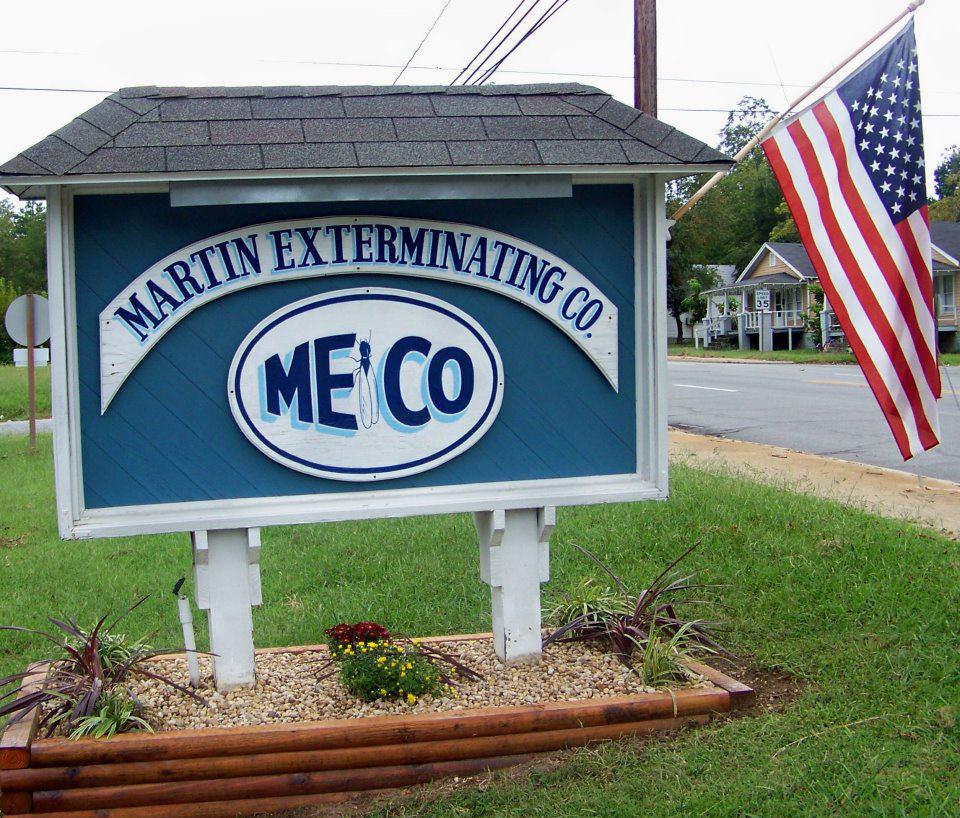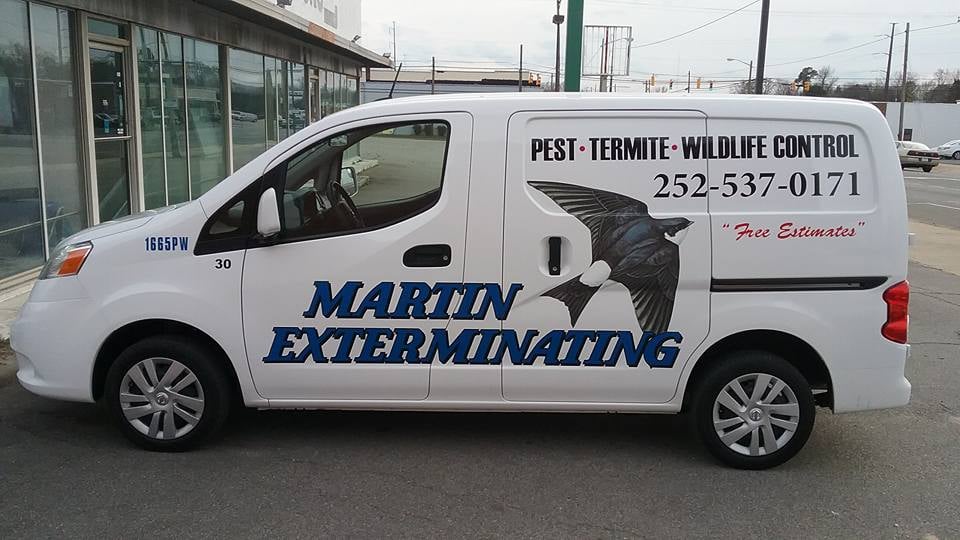The Most Effective Way
To Get Rid of Pests
We work hard to help keep you in a safe, pest free environment for one less thing to worry about.
The Experts You Can Trust
Martin Exterminating
Martin Exterminating Company is a locally owned and operated family business for over 50 years! We provide pest control, termite control, mosquito control, moisture control, wildlife control, crawl space encapsulation, and even insulation removal and installation!
N.C. Pest Control License 1665PW.
Licensed in North Carolina and Virginia.

Pest Control
Termite Control
Mosquito Control
Bed Bug
Wildlife Control
Moisture Control

All-In-One Solution For
Pest Control Services
At Martin Exterminating, we stand behind every inspection and service our expert pest control technicians perform. Whether it’s for your home or business, we’re fully ready and equipped to tackle even the most extensive pest problems. Contact our experts today to schedule an inspection, your satisfaction is guaranteed!
We Specialize In Creating
Happy Clients
FAQ's
Frequently Asked Questions
Pest control insulation works by combining traditional insulation properties with pest-repellent capabilities. This type of insulation is treated with materials that deter common pests such as insects and rodents, creating an added layer of protection for your home. The treated fibers disrupt the insects' natural systems, making your home a less inviting environment for them. At the same time, it functions as an effective insulator, maintaining energy efficiency and regulating indoor temperatures.
One significant benefit of pest control insulation is that it provides long-term protection without the need for constant reapplications or harsh chemicals. It can be installed in spaces like attics and walls, where pests often enter and nest, reducing the chances of infestations. Additionally, this insulation not only deters pests but also contributes to better air quality and a more comfortable living environment, making it an all-round solution for home protection and insulation needs.
Backyard mosquito control refers to the methods used to reduce or eliminate mosquito populations in residential outdoor spaces. These measures are designed to make your yard more enjoyable and less of a breeding ground for mosquitoes. Common strategies include removing standing water, where mosquitoes lay their eggs, and maintaining your yard by trimming overgrown vegetation, which can serve as shelter for adult mosquitoes.
Other effective methods of backyard mosquito control often involve natural or chemical treatments. Natural options include using citronella candles, planting mosquito-repellent plants, or introducing beneficial insects like dragonflies that feed on mosquitoes. For chemical approaches, products like outdoor sprays or larvicides can target mosquito larvae or adults. Combining multiple control methods typically yields the best results, helping to create a mosquito-free environment for you and your family to enjoy outdoor activities.
Attic moisture control refers to the processes and measures used to manage humidity levels and prevent excess moisture buildup in an attic space. This can involve proper ventilation, insulation, and steps to address sources of moisture, such as roof leaks or inadequate ventilation systems. Maintaining a balanced level of moisture in the attic helps to protect the integrity of the structure and minimize the risk of issues like mold growth, wood rot, or insulation damage.
The importance of attic moisture control cannot be overstated, as unmanaged moisture can lead to costly damage over time. Excessive moisture not only compromises the structural components of the attic and the roof but can also have health implications by encouraging mold and mildew growth. Controlling moisture helps extend the lifespan of the roof and surrounding materials while also improving indoor air quality. By addressing attic moisture effectively, you contribute to the overall health and safety of your home.
Finding the best pest and wildlife control services in your area starts with research and gathering recommendations. Begin by asking friends, family, or neighbors for referrals based on their personal experiences. Online reviews and ratings can also provide insight into the quality and reliability of local services. Look for companies with consistently positive feedback and a history of satisfied customers.
Additionally, it’s important to verify credentials to ensure the service provider is reputable and qualified. Check for proper licensing, certifications, and insurance, as these indicate professionalism and compliance with safety standards. Comparing several providers, asking detailed questions about their methods, and understanding how they handle specific pest or wildlife issues will help you make an informed decision. Taking the time to evaluate your options ensures you choose a service that meets your needs and provides effective, responsible solutions.
Outdoor mosquito control works by targeting both the mosquitoes and their breeding environments to reduce their population and prevent bites. One common method is applying targeted treatments to areas where mosquitoes rest or breed, such as tall grass, shaded areas, and standing water. These treatments often involve environmentally safe products designed to kill adult mosquitoes or larvae before they can develop into biting insects.
Another crucial aspect of mosquito control is habitat reduction. By eliminating standing water around your property—like removing debris, cleaning gutters, or filling in low-lying areas—you can prevent mosquitoes from laying eggs. Preventive measures, such as installing screens on outdoor spaces and using plants that naturally repel mosquitoes, also help create a less inviting environment for them. Together, these strategies form a comprehensive approach to keeping outdoor spaces more comfortable and mosquito-free.
The best mosquito control method often depends on the specific environment and level of infestation. One highly effective approach is eliminating mosquito breeding grounds by removing standing water where they lay eggs. This includes tasks like emptying unused containers, cleaning gutters, and covering water storage areas. Reducing these habitats can significantly lower mosquito populations over time.
Additional measures such as using mosquito repellents, installing screens, and wearing protective clothing can help prevent bites. For more targeted control, treatments like sprays or larvicides can be applied to areas where mosquitoes are most active or breeding. Combining these methods provides a comprehensive strategy to manage mosquitoes effectively, ensuring both immediate relief and long-term prevention.




